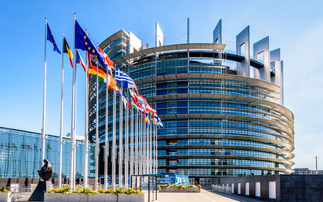Andrew Warren argues it is time for the ICAO and IMO to step up to the plate and finally deliver concrete measures to cut aviation and shipping emissions
The Paris Climate Change Agreement - approved by 195 nations amidst worldwide euphoria last month - carefully omits two very large, and seriously growing, international sources of energy usage.
Nowhere in the final Paris text is there even a passing reference to any need to control either international aviation or shipping emissions. Already aviation accounts for five per cent of global warming gases, and international shipping around three per cent. During this century, their emissions have grown twice as fast as the world's economy.
Unchecked - as the Paris Agreement still permits - these two sectors could end up by 2050 contributing almost 40 per cent of total world greenhouse gas emissions. If treated as individual countries, both global aviation and shipping already would both join the list of Top 10 emitters.
Earlier drafts of the Paris Agreement, prepared by the French presidency, had quite specifically stated that countries should work "through the International Civil Aviation Organisation, and the International Maritime Organisation, respectively, with a view to agreeing concrete measures addressing these emissions". But by the close of the conference, such references had disappeared entirely without trace.
To date, progress towards agreeing any concrete reductions measures within both the ICAO and IMO has been glacial. Had this draft text been adopted, it would have made governments when negotiating in these two fora, accountable in terms of the Paris Agreement's overall objectives. Without any specific provisions on international transport within the climate deal, there remains justifiable scepticism that transport ministers, and hence companies, will ever prioritise the climate deal's core objectives.
Removal of any reference to international transport within the final text seems to have been due to fears expressed that ambitious reduction objectives in the transport sector would deter trade growth. Depressingly such concerns seem to have been a regular incubus, affecting all such discussions for the past 25 years or more.
However, it has now been confirmed that both international transport Organisations have now undertaken to consider fuel efficiency and greenhouse gas emissions at future meetings, which both are set to hold in October 2016. Those anxious to ensure that the Paris Agreement is not undermined should be keeping a very careful eye on both sessions.
Andrew Warren is honorary president of the Association for the Conservation of Energy
This article is part of BusinessGreen's Road to Paris hub, hosted in association with PwC.








